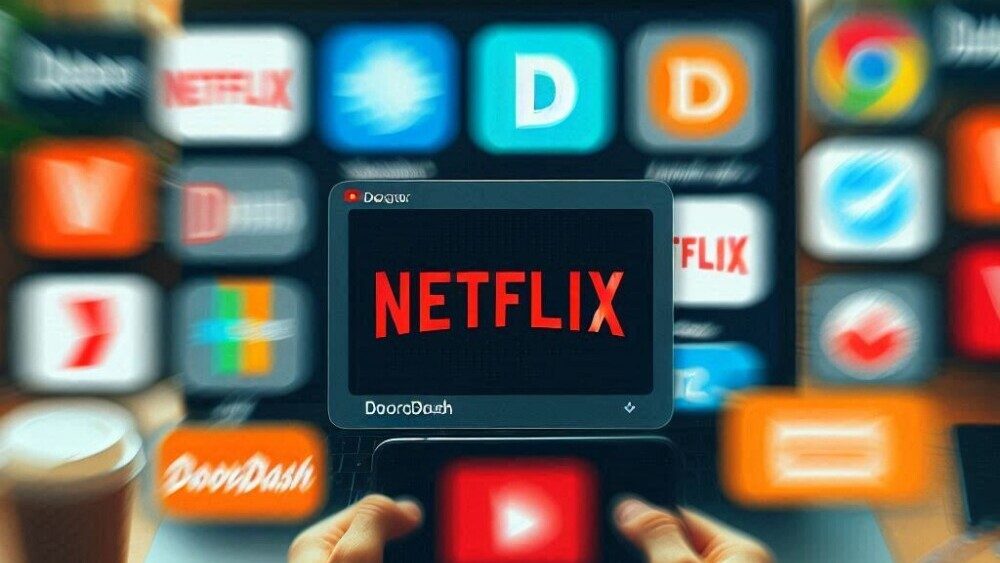I Make Good Money, So Why Am I Always Broke

Money can be such a tricky subject. I’ve often found myself wondering, “I make good money, so why am I always broke?” You check your deposit, it’s there. But somehow, by the 15th, the balance is nearly empty. It’s like watching your paycheck vanish into thin air. Sometimes it’s just a signal to look a little closer at what’s going on with our spending, habits, and mindset.
Why It Feels Like Good Income Isn’t Enough
When you earn a decent salary, it seems like your money should last much longer. But for many of us, good income doesn’t always translate into good financial habits. I used to believe that having more money would solve all my problems, but like Biggie Smalls said Mo’ Money Mo’ Problems. We have to understand financial behavior is just as important as increasing our income.
We start out thinking that once we earn more, our wealth will automatically build. The reality is that our financial patterns come from our mindset, not just the numbers in our bank account.
Many people are surprised to find that more money can also bring more responsibility, more temptations, and more costly habits. This isn’t just about earning; it’s about managing an ongoing relationship with money that requires thoughtful planning and constant reflection. Many have learned the hard way that without the discipline of a smart budget, higher income can quickly slip away into unforeseen expenses and indulgences.
The pressure to keep up with a lifestyle that society admires can make you spend recklessly. The pressure to upgrade your car, your electronics, or your living situation becomes a never ending race. By taking time to understand these dynamics, you have the opportunity to re center your financial priorities. When self reflection meets a solid plan, the mirage starts to clear and the true potential of your income shines through.
What’s Draining Your Wallet?
Many factors can quickly drain your money before you even realize it. It isn’t always the big, glaring expenses but often the little habits that add up over time. Recognizing these small culprits is the first step to stopping them from eroding your finances.
- Lifestyle Inflation: As your income increases, so do your expenses. You might find yourself upgrading your gadgets, dining out more, or even moving to a nicer apartment. The trouble lies in upgrading everything except your financial discipline. Often, this silent increase in cost is so gradual that you hardly notice until your bank account feels the pinch.
- Subscriptions and Small Leaks: Automatic subscriptions and recurring charges for streaming services or online apps might seem harmless individually, but they can really add up over the month. Even insignificant daily expenses, like that extra cup of coffee, tend to pile up over time. Keeping track of these expenditures can reveal surprising patterns that might be draining your wallet.
- Emotional or Stress Spending: Some days stress gets the best of you, and a little retail therapy feels like the perfect remedy. The bill comes without a receipt, and the underlying need for healing remains unaddressed. It is important to acknowledge the emotional triggers linked to spending and consider healthier alternatives for coping with stress.
- Hidden Debt: These are the silent charges concealed in student loan statements, credit card balances, or the creeping “buy now, pay later” offers. They can accumulate over time, turning into a burden you didn’t anticipate.

Take a moment to jot down your recent expenses. Think about whether these little leaks might be contributing to that chronic sense of being broke. A careful review of recurring charges and habitual spending not only helps you track where your money goes but also empowers you to make more deliberate choices in the future.
It is sometimes helpful to dedicate a week solely to observing your spending habits without making any changes. By doing this, you may spot unnecessary patterns that previously went unnoticed. Stepping back to examine these details can be enlightening and lead to sustainable improvements.
Money Mindset: The Real MVP
Often, it’s not about the money itself, but the thoughts and feelings we attach to it. Many of us struggle with internal beliefs that hold us back from managing our finances properly. There can be an underlying sense of scarcity or a feeling of not deserving abundance. I’ve seen how guilt or shame can hinder healthier spending habits and prevent us from making observations needed for progress.
Sometimes, there’s an urge to prove something to show that you belong in a community or to over-give with resources so that others see your generosity. These patterns, which may even stem from childhood experiences, cultural expectations, or past traumas, can greatly influence how we deal with money. When you start to address these beliefs, you set the stage for real transformation in how your finances are managed.
Romans 12:2 reminds me that being transformed by renewing our mind can make all the difference. This scripture challenges us to leave behind old habits and beliefs and to embrace fresh perspectives on money. When you adjust how you think about your finances, you can start to build habits that support growth and security. In this way, refining your mindset turns every spending decision into an opportunity to practice self-respect, accountability, and genuine growth. This verse of scripture is what Transforming Finances is based on!
It might help to keep a journal where you detail not just your expenses but your feelings about them. Writing down your thoughts can sometimes reveal hidden patterns and emotions tied to your financial habits. Over time, this practice becomes a powerful tool in directing your money management strategies towards more thoughtful decisions.
How do I Stop being Financially broke?
Stewardship of finances isn’t about being perfect with every penny you spend. It’s more about intentionality and being deliberate in how you manage what you receive. I’ve come to see money as a tool, a means to support the values and calling you live by, not as a measure of who you are.
Is your money aligned with your goals and beliefs? Do you spend it in a way that mirrors your values, or does it just vanish in the cycle of paying bills and covering expenses? God isn’t confused about your coins. In fact, He looks at how you manage what He has provided. When you use your resources with intention, you create an environment where your financial decisions reflect your deeper priorities and dreams.
Consider taking some time to review your monthly spending alongside your personal values. Ask yourself which expenses genuinely contribute to your personal growth and which ones are distractions from your bigger picture. Regular reflection not only helps prevent wasteful habits but also strengthens your commitment to a more aligned financial lifestyle.
Such a review can be a calm moment of self-assessment. Instead of feeling guilty about past actions, use that time to plan future steps that carry you toward a more intentional use of your money. By doing so, every decision becomes a meaningful part of a larger, more purposeful financial plan.
Your Breakthrough Budget Strategy
Now that we’ve looked at the mindset and habits that keep us broke, it’s time to explore some practical budgeting strategies that have really turned things around for me. These approaches have helped change my relationship with money, and they might be just what you need to see a transformation in your own financial life.
Values-Based Budgeting: Think about what matters the most to you. Is it your family, your health, or maybe a cause you’re passionate about? Prioritize spending in these areas and cut back in places that don’t align with your top values. When your budget lines up with your priorities, every expense becomes a choice that supports your bigger picture. It’s helpful to create a clear list of what you value most and then measure each spending decision against that list.
Pay God First and then Pay Yourself: This means giving God a portion of your income and then setting aside a portion of your income for savings or investments before you even pay your bills. Many of us skip these vital steps because we worry about making ends meet, but automating your savings ensures that you’re consistently building a financial cushion. Consider setting up an automatic transfer to a savings account as soon as your paycheck arrives.
Tracking Spending Without Shame: I recommend using a simple tool or even a journal to log your weekly spending. This strategy can gently guide you toward recognizing patterns and making improvements, rather than labeling yourself as a failure. Over time, this practice not only reveals areas where money is slipping away but also empowers you to make more informed choices every day.

Rebuilding a Strong Financial Foundation
Once you start aligning your spending with your values and managing your money intentionally, the picture begins to change. It’s not about scrambling to save every dime; it’s about constructing a financial strategy that supports your dreams and responsibilities. Imagine your finances as a structure you are gradually building – every carefully considered decision becomes a brick in a sturdy foundation.
This process might feel overwhelming at first, especially when faced with numerous small adjustments. However, every small, consistent action leads to bigger changes over time. Picture your financial journey as an adventure where each thoughtful step contributes to a secure and vibrant future. The progress might be gradual, but with each deliberate move, you’re actively laying down material for a more robust financial future. Your future self will thank you for the choices you make today. If you are interested in joining a financial coaching program. Click the link to see how Transforming Finances can help you rebuild a strong financial foundation.
If you’re looking for more structure or accountability, consider joining a financial coaching program or subscribing to a newsletter that provides daily insights. Engaging with a community that shares similar financial goals can also help reinforce positive habits, as you exchange tips, experiences, and encouragement with others on the same path. Comment or share your “aha” moments in the comments.
Are Debt Free people happier?
Research and real life experiences show that while money doesn’t buy happiness, debt freedom does bring a sense of peace and breathing room. Being debt free often means less anxiety about bills and more flexibility in your day-to-day decisions. Whether it’s giving more, saving for your dreams, or simply resting easier at night, financial freedom is about making life lighter, not just wealthier.
Is it Normal to have No Debt?
In today’s culture, debt often feels like a rite of passage from student loans to credit cards to car payments. But just because it’s common doesn’t mean it’s normal. Living debt free is possible and increasingly becoming a goal for those who value flexibility and peace over lifestyle inflation. It may not be the popular route, but it’s a powerful one. And with intentional planning, it’s absolutely within reach.
It’s Not About How Much It’s About How You Manage
The idea of making good money but still feeling broke is something that many of us struggle with. It serves as a reminder that our financial situation isn’t solely defined by the numbers in our bank account but is largely shaped by how we handle, spend, and think about money. Every dollar is a tool, and it’s up to you to decide how best to use it.
Remember that the Bible reminds us that God is not wasteful. You’re not here to burn through your income without a purpose. Instead, view your resources as instruments that can lead to meaningful impact, not only for you but also for those whose lives you touch. Breaking old habits and forging new, attentive patterns can provide a freeing sense of hope and possibility.
Today, I encourage you to take a closer look at your spending habits and realign them with what truly matters. Begin by performing a detailed, honest review of your monthly expenses and consider where you can make improvements. Each small change is a step toward a more secure and fulfilling financial future.
As you think about this, reflect on one small adjustment you can introduce into your budget starting today. Perhaps it’s cutting an unnecessary subscription, preparing meals at home instead of dining out, or setting aside a few extra dollars for savings. Every step, no matter how small, is a positive move towards better financial health.
Financial well-being is built over time. By consciously choosing to manage your money in ways that mirror what you value most, you can slowly create a life filled with stability and purpose. Please take a moment to absorb these ideas and consider what changes, however incremental, might make the greatest impact in your daily life.
Before you head out, take a few minutes to reflect: What’s one small change you can introduce today that might set the stage for long-term transformation? Your money is not just for spending; it’s a tool to build a rewarding life. Look at your finances as a project, one that you build brick by brick, ensuring that every choice you make pushes you closer to a future of stability, growth, and fulfillment.
Financial responsibility and mindful spending go hand in hand. In time, these habits will enable you to not only manage your current expenses but also to invest in your future. So get started today reassess your priorities, rework your budget, and move forward with a renewed sense of purpose.






The question of “Why am I broke?” hits home for so many people, and it’s often more complex than just spending too much. In many cases, it seems tied to mindset, habits, and even emotional triggers around money. One thing I wonder is how much of this cycle stems from a lack of financial education versus systemic challenges like low wages or debt traps. Is there a particular starting point that tends to be most effective: budgeting, increasing income, or changing behaviors?
Thanks for you great feedback and these great questions. Honestly, it’s a mix of both. Lack of financial education means many of us don’t even know we’re in a cycle. Then add in systemic challenges like unfair wages, or predatory lending and you have problems that you can’t directly influence with your own actions. Financial education gives you tools, but if you are working multiple jobs and are still unable to pay rent that’s more about broken systems. God gives us wisdom to navigate it all and the all may include advocating for change.
Regarding a particular starting point I always lean towards behavior. That is what we are actually doing, your mindset is what drives your behavior. That saying “that when you know better than you can do better” that’s where behavior comes in, right in the middle of knowledge and change. Then you can start being strategic about what you can can control, but I believe that starts with you.